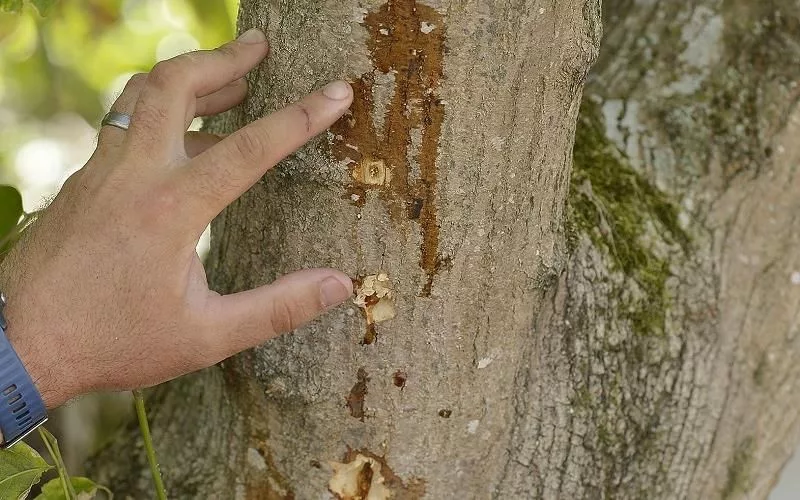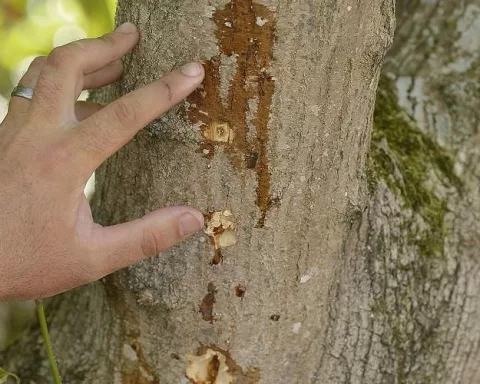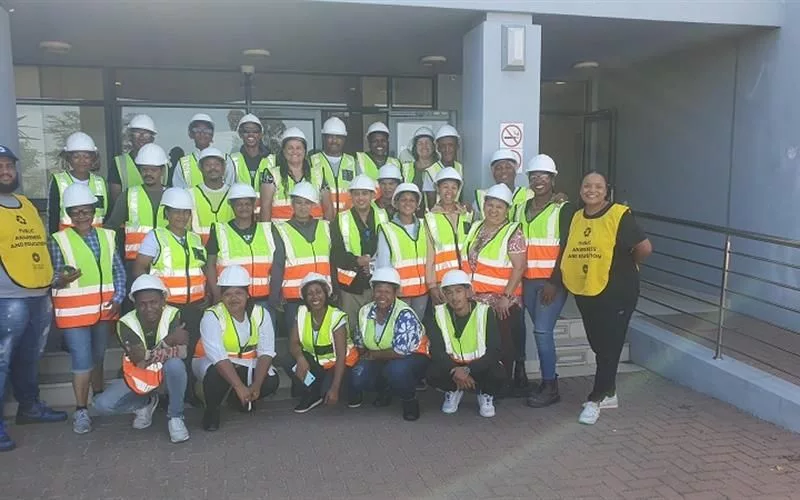The Polyphagous Shot Hole Borer Beetle Infestation, an invasive species, has spread beyond its traditional hotspots in Cape Town, with the first sighting reported in Penhill, Eerste River. The beetle poses a significant threat to the local flora, and urgent action is required to contain its spread. The City of Cape Town is urging residents to report any sightings and participate in free training sessions to handle the situation responsibly. The gravity of the threat highlights the need for caution and preservation of Cape Town’s urban forests.
What is the Polyphagous Shot Hole Borer Beetle Infestation?
The Polyphagous Shot Hole Borer (PSHB) beetle is an invasive species that has been infesting trees in Cape Town since 2019. The infestation has now spread beyond traditional hotspots, with the first sighting reported in Penhill, Eerste River. The beetle poses a significant threat to the local flora, and residents are urged to report any sightings and participate in free training sessions offered by the City to handle the situation responsibly.
A Threat Emerges in New Territory
In recent disturbing news, Cape Town officials have reported the sighting of the invasive Polyphagous Shot Hole Borer beetle, commonly referred to as the PSHB, in Penhill, Eerste River. This marks a concerning shift, as it is the first incidence of the beetle’s presence found beyond the traditional hotspots of Somerset West and the Southern suburbs of the city.
Warnings bells were first rung on the 1st of February 2024, when a tree in Penhill was suspected of being infested. Swift action was taken to investigate the matter, and samples from the tree were sent to Stellenbosch University (SU) for DNA testing. The university confirmed the presence of the PSHB beetle in the samples on 15th March 2024.
This revelation has marked Penhill as a new breeding ground for the PSHB. Until this point, collaborative efforts had effectively contained the infestation within the Helderberg region and the Southern suburbs, largely due to the active participation of local residents and businesses dealing with plant materials.
The Extent of Infestation and Impact on Local Flora
In the wake of this development, the City’s Invasive Species Unit has been carrying out extensive surveys in the Penhill area over the past seven weeks. The results of their investigation have revealed that 24 trees in the area are infested, with eight located on City-owned land and the remaining 16 on private properties. The infestation has negatively impacted a variety of tree species, including Boxelders, London Planes, English Oaks, Beef Wood, Weeping Willow, Cape Chestnut, Black Locust, Paperbark, and Maples.
This unsettling discovery has sparked an urgent plea from the City’s Deputy Mayor and Mayoral Committee Member for Spatial Planning and Environment, Alderman Eddie Andrews. He strongly urges private landowners to perform thorough inspections of their trees for signs of infestation and to report any suspicions to the City without delay. The City also needs permission to access private properties for a complete assessment and determination of the infestation’s reach in Penhill.
Recognizing City staff members is an easy task, as they are always dressed in City of Cape Town branded clothing and carry official identification cards.
The Current Scenario and Detection of Infested Trees
A look at the current statistics reveals that 24 trees are infested in Penhill, Eerste River. On a larger scale, there have been 258 recorded sightings of infested trees in Newlands, Rondebosch, Mowbray, Claremont, Kenilworth, and Observatory along the Liesbeek River. Shocking numbers from the Helderberg Area show an alarming 4,961 infested trees since 2019.
The telltale signs of an infested tree include branch dieback, gumming, entry and exit holes, and staining on the bark. It is important to stress that infested trees must be chipped on site to prevent the spread of the pest to other areas, and not removed from the property.
Residents can report sightings of the PSHB beetle to the City of Cape Town’s Invasive Species Unit through various channels, including online, via phone call or email. Upon receiving a report, the City strives to confirm the sighting within 10 business days, although the response time may vary depending on the volume of reports received.
The Gravity of the Threat and City’s Countermeasures
The PSHB beetle poses a significant threat to Cape Town’s urban forest, as the only way to handle infested trees is to chip them. The use of pesticides and fungicides has proven to be ineffective in exterminating the beetle from these trees, further emphasizing the need for caution to prevent its spread.
The City of Cape Town is urging residents, especially those with trees on their private properties, to participate in free training sessions offered by the City. These sessions are designed to provide attendees with the knowledge to handle the PSHB beetle threat in a responsible and effective manner.
Despite the ongoing battle against the invasive PSHB beetle, the City remains steadfast in its mission to overcome this environmental challenge and preserve Cape Town’s urban forests.
1. What is the Polyphagous Shot Hole Borer Beetle Infestation?
The Polyphagous Shot Hole Borer (PSHB) beetle is an invasive species that has been infesting trees in Cape Town since 2019. The infestation has now spread beyond traditional hotspots, with the first sighting reported in Penhill, Eerste River. The beetle poses a significant threat to the local flora, and residents are urged to report any sightings and participate in free training sessions offered by the City to handle the situation responsibly.
2. Where was the first sighting of the PSHB beetle reported?
The first sighting of the PSHB beetle beyond its traditional hotspots in Cape Town was reported in Penhill, Eerste River.
3. What is the impact of the infestation on local flora?
The infestation has negatively impacted a variety of tree species, including Boxelders, London Planes, English Oaks, Beef Wood, Weeping Willow, Cape Chestnut, Black Locust, Paperbark, and Maples.
4. What are the signs of an infested tree?
The telltale signs of an infested tree include branch dieback, gumming, entry and exit holes, and staining on the bark.
5. What countermeasures is the City of Cape Town taking against the infestation?
The City of Cape Town is urging residents to participate in free training sessions offered by the City to handle the PSHB beetle threat in a responsible and effective manner. They are also encouraging residents to report any sightings of the beetle and allowing access to private properties to conduct assessments.
6. What is the urgency in containing the spread of the PSHB beetle infestation?
The PSHB beetle poses a significant threat to Cape Town’s urban forest, and the only way to handle infested trees is to chip them. The use of pesticides and fungicides has proven to be ineffective in exterminating the beetle from these trees, further emphasizing the need for caution to prevent its spread.












